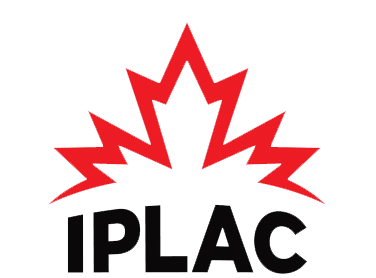To bring together two clichés or axioms, the road to hell is paved with good intentions. When it comes to payday loans, misperceptions and a lack of understanding by the Government of Ontario is laying down the asphalt. In their quest to “protect” those who take payday loans, they make them victims to usurious fees and penalties and open them to criminals both local and international.
Payday lenders know quite well how they are viewed by the privileged. Villains taking advantage of poor, powerless, innocents too ignorant of their options to understand how victimized they are. The working poor thrown into a never-ending cycle of increasing, unpayable debt. It is an image straight out of a morality play, with the lender playing the moustache twirling evil doer. It is a heartrending image, so compelling that it is easy to understand how the government might feel that it must ride to the rescue. Unfortunately, the image is a false one and those riding to the rescue are not helping the citizens of Ontario but the banks, the unregulated online lenders and, unfortunately, criminal organizations.
The truth of independent lenders who are not a part of the chains seen on almost every street corner is much different from the terrible false image. These small businesspeople serve the communities in which they live helping those facing financial crises that might seem small to some but would be insurmountable without access to a payday loan store to lend them a few hundred dollars until their next paycheck arrives. This might seem like nothing to people who have other resources available, like an unmaxxed credit card, a credit line at their bank or the Bank of Mommy and Daddy. But many Ontarians are just one car repair, one seven day hold of their check at the bank or one prescription away from losing their car or their home.
Let’s look at that image again. First, let’s look at the customers who are making use of this important service. They are, most likely, one of the 50% of Canadian who live paycheck to paycheck. If they have a credit card, it is likely maxxed out or has little room available and they are struggling just to pay the minimum balance and trying not to think of the 20% or more of interest on the card balance. When they deposit a cheque, even a paycheck, to their bank account they duly stand in line only to be informed that the cheque amount will be held for 7 to 10 days. How many of us have experienced the panic and frustration of hearing these words while trying to calculate how they will pay the utilities, for an unexpected car repair, or for a prescription for their child? What can be put off? Are any of the outstanding bills willing to wait another 10 days? If I live in a rural area, will my car die on my way to or from work? Will I arrive home to find my gas or electricity turned off? Will my key suddenly not open my door? These are not the issues of fools or victims. They are the issues of working people suddenly faced with a cash crisis. They can’t get a quick loan from the bank and if their credit cards had enough to address it, they would not be in crisis.
Luckily, they currently have access to independent payday loan stores, whose job it is to help them get past this crisis. They can walk into the store, talk to someone for a few minutes and walk out with what they need to get by. When their cheque clears the bank, they pay back the loan.
So what is the problem? It would seem that enough Canadians need this government-regulated service to justify its existence and popularity. If it were not vital and important, payday lenders would not exist. Why is the image of the lenders so negative? Part of this is history, a shared memory of loan sharks and criminals. The biggest issue today is semantic, an argument over how to define about $20.
When one gets a loan at a bank, one expects to pay interest and to pay some setup feeds. People getting payday loans expect the same. They walk into their local shop to get what they need and appreciate that the fee they pay, about $20 per $100 loaned, pays the rent, utilities, salaries and other costs to keep the doors open and the lights on. They understand, because it is easily available information, that the break-even is over $20 per $100 loaned. They get that speaking with the lender and the time needed to process the loan has value. For what they need and what they get, $20 is reasonable for a loan that should exist for less than a month.
But others look at that same $20 and think, “if this was an annual loan, the interest rate would be crazy high. No bank could charge that kind of interest.” The argument begins, government gets involved and the trip along the road to hell beings.
The Government of Ontario has reduced the fees that payday lenders can charge to $18 per $100. Worse, they plan to reduce the fee further to $15 per $100. We have seen this road taken in other provinces and in parts of the US. The stops on the road include independent stores going out of business and customers having to turn to unregulated online loan sites or to local loan sharks. Now the borrower becomes a victim, looking back with nostalgia to the personal, local, independent lender.
It would be nice if there was no need for anyone to take out a payday loan. Until that day comes, the Independent Pay Day Loan Association of Canada wants to work with our government to continue to provide the best protection possible for its valued clients, while keeping these vital businesses alive. If the government refuses, it is the most vulnerable among us that will be riding on that road paved with good intentions.


